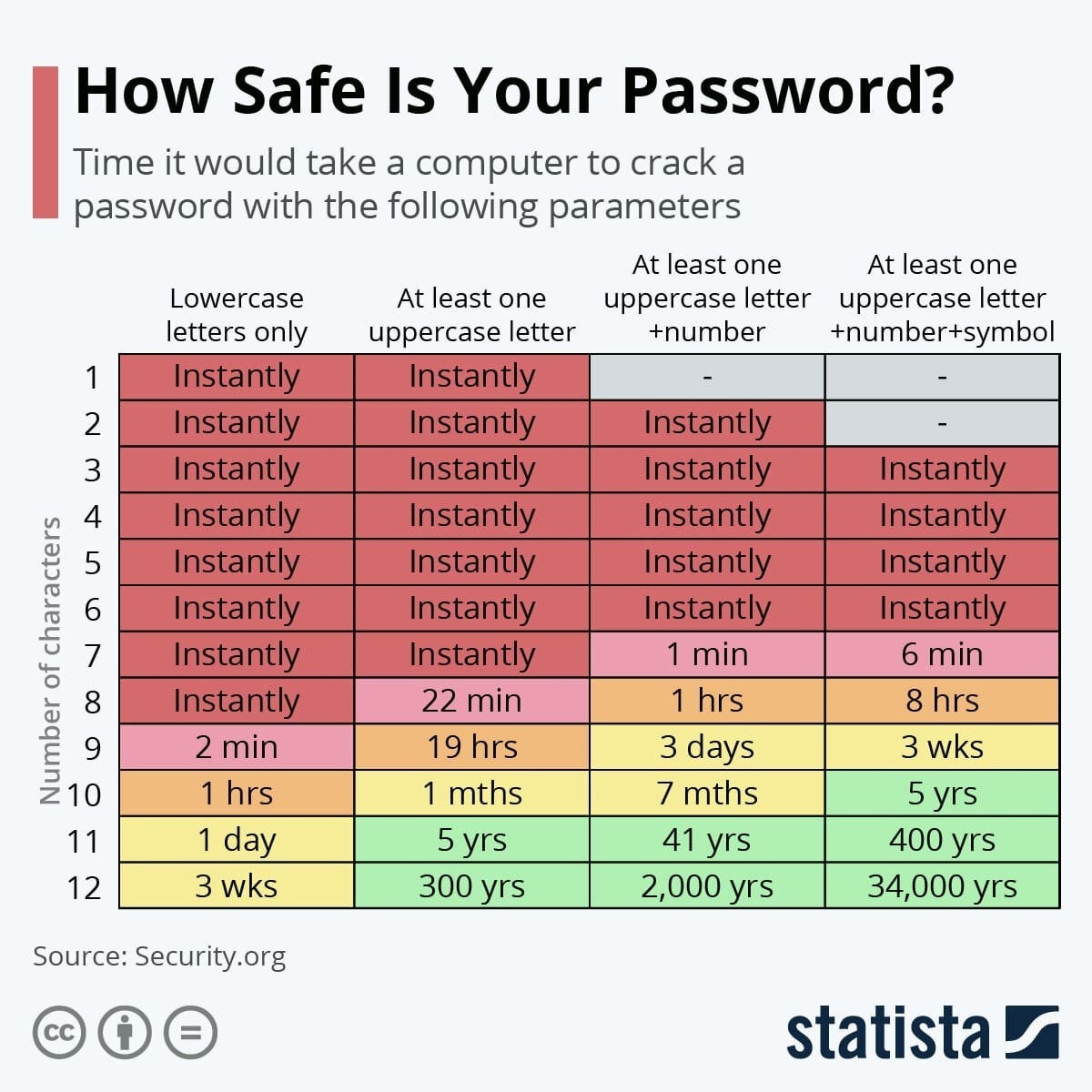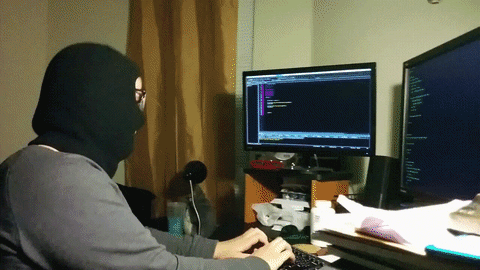Cyber Security: Why is it important?
And what does it consist of?
We know security is important.
It’s part of everything we do online.
But yet, we still don’t take it seriously enough.
Studies show that at least 65% of people reuse passwords on multiple sites if not all.
This shouldn’t come as a shock to you, but when you realise how easy it is to crack weak passwords, you might wanna change yours.
Kinda scary huh?
You might say:
“No one would hack into my account specifically. I’ll be fine.”
Well, we wouldn’t want to leave that to chance.
I’ve not really been a victim of having my account hacked.
But I definitely wouldn’t want to think about the possibility of that happening.
So, some tips for managing passwords:
Set secure passwords. These don’t need to be a keyboard smash like ASKDJFHLasdfkj3324, cause that’s hard to remember.
They should ideally contain a numeric character, upper and lower case characters, and a symbol character.
The longer the better. Ideally 12 characters.
Password managers are great; research the one you go with. Some of them have fallen victim to breaches as well, such as LastPass.
Anyway, today’s edition isn’t specifically a rant about how you should change your passwords.
I’ve always been fascinated by cybersecurity, but I felt like I couldn’t be a part of it.
Activities like capturing the flag in hackathons (cyber security challenges), made me feel stupid when I couldn’t understand where to begin.
So when I started studying Computer Security in my 2nd semester, I was quite excited.
As part of this module, I’ve been completing lab assignments. Each lab focuses on a different aspect of security from the perspective of Linux.
This started with Linux terminal commands, cracking a list of 6000+ passwords using hashcat, and breaking into a weak Ubuntu server using Metasploit.
These techniques have opened my mind to how important security is, and why we need to take cybersecurity seriously.
There are 3 words that perfectly describe the purpose of cyber security:
Prevention
This means preventing any form of access, alteration or damage to data on a system.
If we were able to prevent 100% of security attacks, we wouldn’t need to deal with recovery at all.
So ideally, prevention should be the first priority.
In reality, implementing prevention measures comes with the experience of detecting and rectifying potential security issues.
Detection
Detection is a useful way to identify whether a breach of security has occurred.
Whether in the form of unauthorised access to data or tampering with existing data.
Being able to detect these issues helps us to know how to solve them, and thus, how to prevent them in the future.
Recovery
Unfortunately, not every attack can be prevented.
Once a security attack is detected, it’s important to implement processes to recover and restore the original data.
This can mean having several backups of databases or having servers in multiple locations.
Closing thoughts
As with most elements of technology, security isn’t something you add as a last resort.
You need to be considering security from the get-go of any project that you work on.
I hope this gives you a general overview of what cybersecurity is all about.
In a megabyte,
Demi The Techie :)






